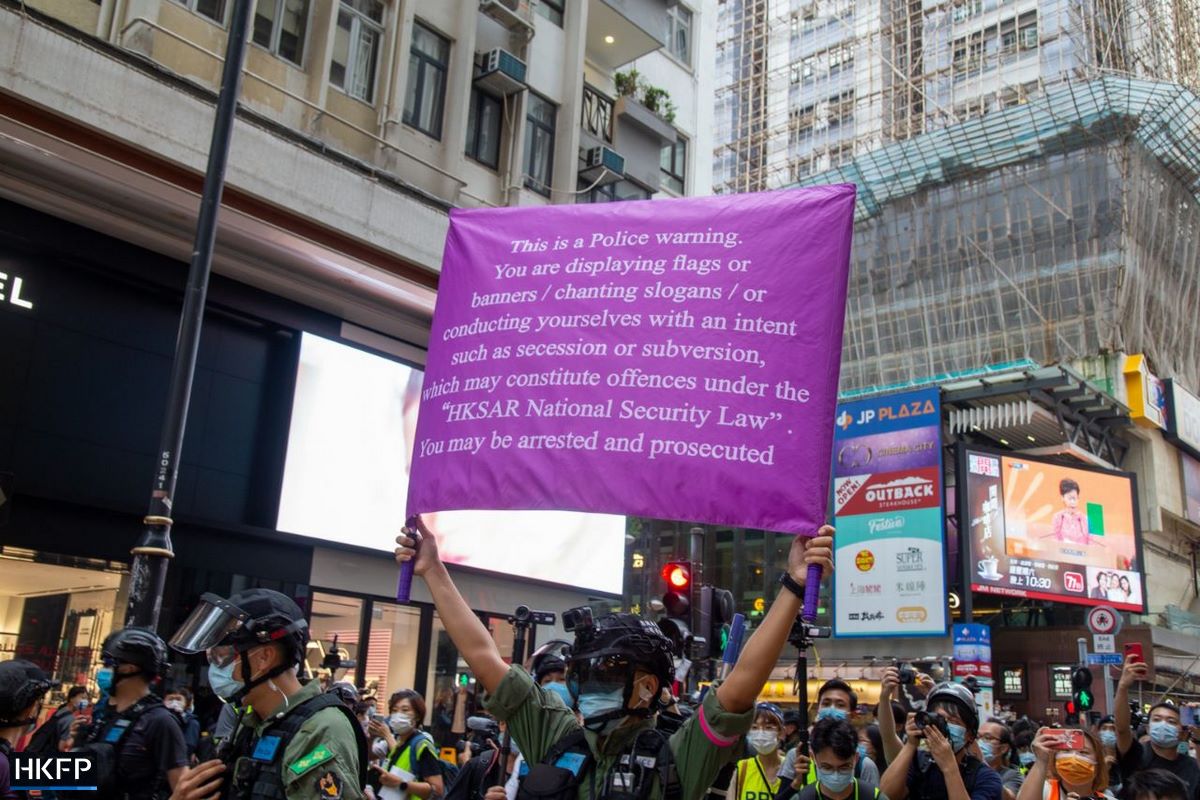A Hong Kong university student has pleaded guilty to inciting secession under the Beijing-imposed national security law.
Lui Sai-yu, who was a student at the Hong Kong Polytechnic University at the time of his arrest, was convicted by Judge Amanda Woodcock at the District Court on Wednesday.

The 25-year-old was earlier accused of selling weapons on social media platforms and posting pro-independence messages. He has already spent around 19 months in detention since his arrest in September 2020.
The defence argued that Lui – a dutiful son to his single mother – cooperated with police throughout the investigation.
His sentence will be handed down on Friday. While the maximum penalty for incitement to secession is 10 years in prison, the maximum sentence for cases heard at the District Court is seven years.
Pro-independence Telegram channel
Lui was arrested at his residence in Fanling on September 24, 2020. Police seized a pepper ball gun, other air guns and rifles, an extendable baton, two knives, and other paraphernalia and body gear used by protestors during the 2019 protests over a controversial extradition bill, which was later axed.

He was initially suspected of violating two offences – possession of arms without a license and possession of offensive weapons – but was charged with breaching the national security law when he appeared in court last April.
According to the prosecution’s statement on Wednesday, Lui was one of the administrators of a public channel on messaging app Telegram, the translated title of which was Channel of Anti-Communism and Hong Kong Independence. The channel was created on December 14, 2019.
The prosecution flagged posts made by Lui after the national security law was imposed by Beijing in June 2020, including some that said “Hong Kong independence [is] the only way out.”
Lui also admitted to advertising a pepper ball gun for sale in the channel.
A responsible student
Addressing the courtroom, the defence argued that Lui was not a well-known figure and that his messages were not widely broadcast.

In a mitigation letter written by Lui in Chinese and translated by the defence into English, the defendant said he had participated in lawful protests during the 2019 unrest and spoke up about his ideals and views of the government. He said that all he wanted was for the people of Hong Kong to be listened to and respected.
The defence added that Lui was described by his teachers as a responsible student in secondary school. While Lui’s university entrance examinations were not very good, he worked hard and eventually was admitted to an engineering program at the Polytechnic University. He is currently taking a mathematics course while in detention.

Passed in the wake of the 2019 protests and unrest, the national security law criminalised subversion, secession, collusion with foreign forces and terrorist acts, which were broadly defined to include disruption to transport and other infrastructure.
Rights groups and activists say the sweeping law has been used to silence civil society groups and pro-democracy leaders, but the authorities maintain it has restored stability and peace to the city.
Support HKFP | Policies & Ethics | Error/typo? | Contact Us | Newsletter | Transparency & Annual Report | Apps
Help safeguard press freedom & keep HKFP free for all readers by supporting our team
























